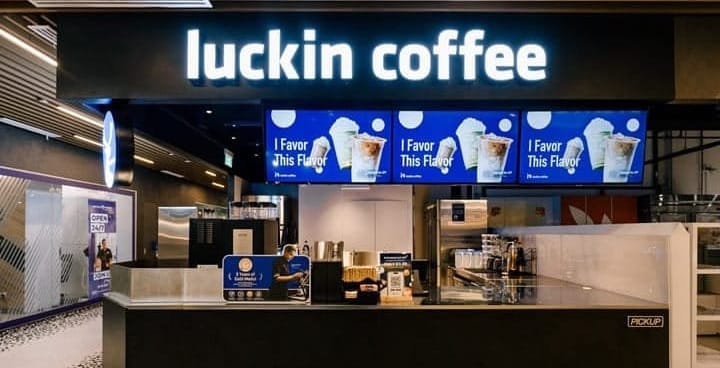Chinese Brands Dominate Market as American Rivals Struggle to Keep Up
American companies, which have long dominated this space, are now facing fierce competition from local brands
Once seen as an untapped gold mine for Western brands, China's consumer market is undergoing a seismic shift. American companies, which have long dominated this space, are now facing fierce competition from local brands. This trend is particularly evident in the fast-food and retail sectors, where Chinese companies are leveraging national pride and cultural resonance to outpace their Western counterparts.
The Rise of Tastien: China's McDonald's
In the bustling city of Tastien, a local fast-food chain is making waves. Dubbed China's answer to McDonald's, Tastien offers a distinctly Chinese twist on the American burger, proudly declaring its "Made in China" heritage. The restaurant's interior is adorned with Chinese imagery, blending modern fast food with traditional cultural elements. This strategy is resonating with consumers who are increasingly favoring homegrown brands over foreign ones.
Western Brands Under Pressure
The shift is not limited to fast food. Major American brands are witnessing declining sales as Chinese competitors gain ground. Apple, for instance, saw its smartphone sales plummet by 19% in the first quarter of 2024, while its Chinese rival, Huawei Technologies, experienced a staggering 70% increase in sales. Apple's revenue in China fell by 8% to $16.4 billion during the same period.
Other American giants are facing similar challenges. Estee Lauder anticipates a drop in sales, and Walmart has closed over a hundred stores nationwide in the past five years. Nike, once a dominant force in China's sportswear market, is losing ground to local brands like Anta. Known for incorporating traditional Chinese culture and style into its products, Anta is winning over younger consumers who prefer domestic brands that reflect their heritage and national pride.
The Coffee Wars: Starbucks vs. Luckin Coffee
Starbucks, which introduced China to a new coffee culture, is also feeling the heat. At the end of 2023, local rival Luckin Coffee surpassed Starbucks as China's largest coffee chain by sales and units. Luckin's success is attributed to its efficient operating model and significantly lower prices, often 50% less than Starbucks. As a result, Starbucks' sales dropped by 8% in the first quarter of this year, while Luckin's surged by 41%.
Despite these challenges, Starbucks remains committed to its premium positioning and plans to expand further in China. The company opened nearly 900 new stores across the country in 2023, bringing its total to almost 7,000. However, Luckin's aggressive expansion, particularly in tier two and tier three cities, has resulted in nearly 19,000 locations, far outpacing Starbucks.
Adapting to a Changing Market
As American brands grapple with declining market shares, industry analysts suggest that maintaining a strong brand identity and adapting to local consumer preferences are crucial. While some American companies are sticking to their premium positioning, others may need to rethink their strategies to stay competitive.
The rise of local brands like Tastien, Anta, and Luckin Coffee signifies a broader trend of Chinese consumers embracing domestic products. This shift not only threatens the dominance of Western brands but also underscores the growing influence of Chinese companies in the global market.
For American brands, losing out on China represents a significant missed opportunity, both in terms of revenue and brand presence. As Chinese rivals continue to innovate and expand, the once enormous potential of the Chinese market for Western companies is rapidly diminishing. The question now is whether American brands can adapt quickly enough to reclaim their foothold in one of the world's largest consumer markets.







